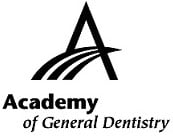Dry Mouth Treatment
Dry mouth, also known as xerostomia, occurs when the salivary glands are not working properly and there is not enough saliva in the mouth. It can cause difficulties in tasting, chewing, wearing dentures, swallowing and speaking. Dry mouth also affects your dental health. In fact, it can increase your chances of developing cavities and infections in your mouth.
Symptoms of dry mouth include:
- Sticky, dry feeling in the mouth
- Mouth sores
- Oral infections
- Cracked lips
- Burning sensation in the mouth
Dry mouth is particularly common in older adults and is usually a side effect of the medicines patients are taking. Many over-the-counter medicines and medicines for high blood pressure and depression often cause dry mouth. In fact, more than 400 commonly used drugs can cause dry mouth. Sometimes the salivary glands do not work properly due to patients with certain inflammatory or systematic diseases, including diabetes rheumatoid arthritis and hypertension. Salivary glands can also be affected in patients who have experienced nerve damage, chemotherapy or radiation therapy.
Since dry mouth increases the chances of developing decay and infection in your mouth, it is best to try to prevent or correct the issue with either medication or lifestyle changes. Your dentist may work with your medical provider to switch your medication to one that is comparable in efficacy, but without the side effect of dry mouth. It is also important to take an active role in managing your dry mouth and minimize its risks to your dental health.
Tips to relieve dry mouth:
- Stop all tobacco use
- Brush with a fluoride toothpaste
- Use a fluoride rinse
- Limit your caffeine intake
- Chew sugar-free gum
- Use mouthwash designed for dry mouth
- Use a humidifier at night
- Take a saliva substitute or stimulant
- Drink water regularly
- Avoid sugary or acidic drinks
- Avoid spicy foods





